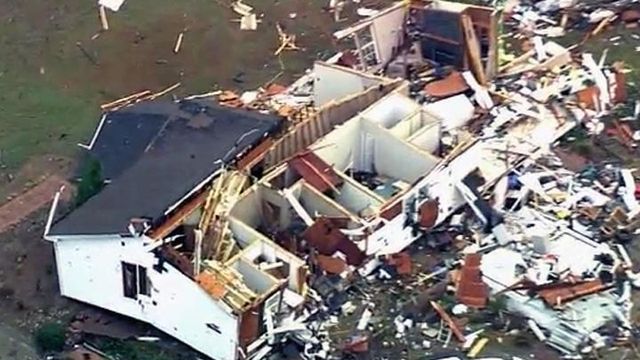Statewide campaign raises awareness of severe weather
Sunday marked the beginning of Severe Weather Awareness Week in North Carolina.
Posted — UpdatedGov. Pat McCrory signed a proclamation last month declaring March 3 through March 9 "Severe Weather Awareness Week," cautioning residents to be on the lookout for tornadoes and severe thunderstorms as spring approaches.
As part of Severe Weather Awareness Week, schools and government buildings across the state will hold tornado drills at 9:30 a.m. Wednesday.
North Carolina is no stranger to tornadoes.
More than 24 touched down dozens of times in 33 counties on April 16, 2011, killing 24 people and damaging and destroying thousands of homes. Five hit in the early-morning hours on Nov. 15, 2008, killing several people in Wilson and Johnston counties. An F-4 tornado struck Raleigh in 1988, killing four people.
"We've seen how quickly these storms can strike and how dangerous they can be," McCrory said. "We've been lucky so far this year, but we can't let our guard down. That is why it is so critical to have emergency plans in place."
McCrory said county and state emergency managers are ready to respond to any disaster, but he cautioned that the first line of defense is at home and that people should take time now to prepare.
State emergency officials recommend that families have safety plans for home, work or school and discuss and rehearse the plans when the National Weather Service issues a storm warning in their area.
Last year, the National Weather Service issued 60 tornado warnings for North Carolina and recorded 21 tornadoes that injured 22 people. Combined, the tornadoes caused more than $19 million in damages.
In addition, the National Weather Service issued more than 1,050 severe thunderstorm warnings, and recorded more than 1,200 incidents of severe thunderstorms with either damaging winds or large hail or both. The severe storms killed six people and injured 46 others.
March, May and November are the deadliest months for tornadoes in the state, but residents should be equally prepared for other forms of severe weather, too, such as lightning, floods or hail.
North Carolina Emergency Management recommends the following safety tips.
- During severe weather, listen to local radio, television, a weather channel or a National Oceanic and Atmospheric Administration radio for information.
Copyright 2024 by Capitol Broadcasting Company. All rights reserved. This material may not be published, broadcast, rewritten or redistributed.





